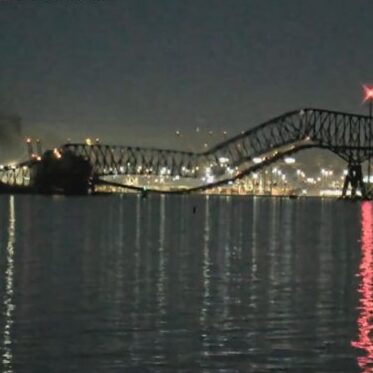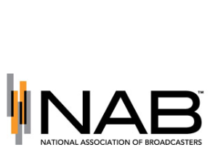
As the US woke up to the news of the tragic Francis Scott Key Bridge collapse, Baltimore morning duo Kramer & Jess at Audacy’s Mix 106.5 (WWMX) knew they had to serve their community. They canceled their planned show, opened the phone lines, and let a city grieve.
In doing so, they showed local radio’s core power to inform, comfort, and connect. Radio Ink talked with show hosts Steve Kramer and Jessica Dutra about the morning’s broadcast.
Radio Ink: Walk us through your early morning – what happened from getting the news to right before you went on the air?
Kramer: I mean, we woke up just like everybody else. There was actually a group text that started at 3 am and everyone just trying to figure it out. I think that our biggest challenge was trying to figure out the news as the morning progressed. You always kind of hope to walk in with all the information, but when you don’t have it in front of you and you’re not able to provide answers that listeners want to know, you’re all in it together. As the news was rolling out this morning, we were figuring it out with them in real-time, you know?
Radio Ink: What discussions did you have with each other or your team going into today’s show?

Jess: When we both got in, Kramer and I just sat down and looked at each other and we were like, we can’t talk about anything else. There’s nothing else that’s on our minds. And if we feel this way, obviously all of our listeners are gonna feel that way. And it would just feel so not authentic and not true to who we are, just because our show is so personal and emotional. We just wanted to create a space to grieve and go through this together. So we just scrapped everything else and just focused on that today.
Radio Ink: Once the show started, a lot of it was listener-driven. How do you guide something like that?
Kramer: I think it’s just asking the question, “How are you feeling?” That’s really all we could base things on this morning. And the feelings were all over the place. I think we kept reiterating that no matter what it is you’re feeling, that’s probably absolutely correct and there’s somebody out there feeling the exact same way as you are.
Baltimore has a big history of heritage. To some cities that might just be a bridge, and obviously, it’s a sad and scary situation, but Baltimore is so prideful. It’s like the loss of a monument. They crossed this bridge going to sporting events or their families crossed it for work. There is 47 years of history with it. Getting into the psyche of how people were feeling was really all we could really go off of other than just the news itself.
Jess: Yeah, and not only that, it was a number one priority for us to honor those lives that are lost, because we’re still currently going through that. We don’t know how many people. that we’ve lost and we wanted to honor those victims. We also wanted to honor the first responders, because this wasn’t just a one-county thing. This was a united effort of basically every single county within an hour’s radius. We had a lot of spouses of first responders calling in, with them sharing their feelings as well as their fears of their wives and husbands being in the freezing cold water since 1:30 am looking for people.
Radio Ink: Of the calls you received are there any that really stuck with you?
Kramer: Anytime that we go through tragedy, you hear the people’s schedules that got oddly changed. We heard from a couple people who were supposed to cross that bridge at 1:30a but got called back to work and had to go do something, or “I was early,” or “I was late.” I think those stories are so impactful because they really make you wonder, you know, like why was that? I think it’s the same feeling as after 9/11 hearing stories like, “I should have been on that flight” or “I was supposed to be in the building that day.” I think those stories are so impactful because they just make you realize there’s probably something else bigger than us that is guiding some of these decisions.
Radio Ink: You touched on this before – with the collapse happening so early, the first details were coming in as you were doing the show. With social media changing how events like this are covered in a widespread way, how do you fight the spread of misinformation on your show?
Jess: I think it’s just being as transparent as possible. From the minute we started the show, the first thing we’re saying is we are finding this out with you. We are going through this with you. And I think just to kind of create a forgiving space as well, just in case we might miss something. We are getting information from, as I mentioned, spouses of first responders. We are getting information from Uber drivers who literally drove over the bridge 30 minutes before it collapsed. I think that was also really important for us, too; to hop on as much as possible and give any sort of update that we had. I think that’s where the connection comes from.
Radio Ink: To you, what role does local radio play during times of tragedy and crisis?
Kramer: This is what local radio is all about. Days like today are the days that matter. We felt it in the studio. Today was important. There are a couple of days during the year we do our biggest radio like when we raised 1.4 million dollars for our local Children’s Hospital here last month. I think that you realize this is what we all got into this business to do.
It’s fun to come on and tell jokes and share stories and take funny callers but when you know that you are responsible for not only breaking the news but also sharing the emotions with your city, I think that’s really where and why local radio will continue to thrive. It’s because we’re able to do things like this where other digital media can’t quite capture the same moment and the same emotions that we can do with radio.
Jess: I want to add to that too because obviously, this was national news today. So every single person is going to go on Instagram or Facebook and they will see the same headline from Good Morning America, CNN, and The Today Show. But no one is going to care about it in the same sense as us because we are here. And as far as our community, the only platform that they’re going to feel actually comfortable sharing an intimate story about what they’re going through or a story that they had with the bridge is us.
We had a listener, Mike, who literally had to drive to see for himself to actually believe it was gone. He’s not going to comment that on a post from USA Today. He’s going to call us and share that with us because he knows that people that are listening are the only people that are really gonna get it.
Radio Ink: If tragedy struck in the market of a fellow on-air personality reading this, what would you say to them? What guidance would you give?
Kramer: You just have to be exactly where they are. You can’t be above them. You can’t try to dictate how the room should feel. I think you’ve got to feel exactly what they’re feeling and that’s going to be different. We’ve unfortunately been through so many different tragedies, some local, some national, and every time you have to meet people exactly where they are.
I think that’s what Jess did a really good job of this morning. We tried to focus on feelings. You’re confused, you’re scared, and you know what? So are we, and that’s where we’re going to enter into the conversation. We’re not gonna cover it up, you know? I think some shows may feel like it’s best to move on, and sometimes it is, but I think in situations like this, we felt the audience needed this morning, and we were just happy to be here to be able to provide that.










This is what radio is all about.
This is what you call REAL RADIO! Not a jukebox, not voice-tracked, But REAL RADIO! Live in the Studio, Connecting with your community on a local level, Great work! Praying for Baltimore
Nice work!! Steve hosted a couple of local events I was part of while in San Diego. Good man, should be proud of your success -and excellent job in handling this morning’s tragedy.
Well done, Mix 106.5.